The NACDL Foundation for Criminal Justice preserves and promotes the core values of the National Association of Criminal Defense Lawyers and the American criminal justice system.
Support Us NowYolando Blount
Yolando Blount, now 41, has served 10 years of a 27-year sentence that she received in 2013 for her involvement in a non-violent, run-of-the-mill tax return scheme in the Middle District of Georgia. Ms. Blount pled guilty based on a sentencing analysis provided by the Probation Department to her counsel, pre-plea, indicating a potential sentence of between six to seven years. Following Ms. Blount’s plea to a plea agreement in which she waived her right to challenge any guideline enhancements at sentencing and on appeal, however, the government advocated a host of enhancements not previously previewed with Ms. Blount. The “piling on” of guideline enhancements is a tactic the government uses to punish people for exercising their right to trial. Essentially, Ms. Blount received a “trial penalty,” without ever having had the benefit of a trial. A survivor of extreme trauma and abuse and despite entering prison with what appeared to her to be a life sentence to her at the time, Ms. Blount’s prison record has been exemplary. She has zero serious disciplinary infractions and has used every opportunity to work and program. She has an excellent release plan with her mother and brother and extended family

 Juan Gabriel Cisneros is a 53-year-old man who has served over 27 years of a life sentence for non-violent marijuana trafficking offenses. Critically, if Mr. Cisneros were sentenced today for the same offenses, he would not face a mandatory life sentence and would already be released. Moreover, Mr. Cisneros demonstrates remarkable rehabilitation, an outstanding work history, and a spotless disciplinary record.
Juan Gabriel Cisneros is a 53-year-old man who has served over 27 years of a life sentence for non-violent marijuana trafficking offenses. Critically, if Mr. Cisneros were sentenced today for the same offenses, he would not face a mandatory life sentence and would already be released. Moreover, Mr. Cisneros demonstrates remarkable rehabilitation, an outstanding work history, and a spotless disciplinary record. Jose DeLaCruz is serving a mandatory Life sentence for a drug offense - a statutory sentence that, if he were sentenced today, would be much lower because of changes in the law. Initially facing a ten-year mandatory minimum sentence, the government decided to file notices to enhance Mr. DeLaCruz’s sentence because of prior convictions (one for simple possession, and the other for delivery of 0.5 grams of cocaine). On the day of trial, the government offered to dismiss the enhancements, which carried the mandatory Life sentence, if Mr. DeLaCruz would relinquish his constitutional right to trial and instead plead guilty. Because Mr. DeLaCruz insisted on proceeding to trial, upon conviction the court had no alternative but to impose a Life sentence. Since he has been in custody, Mr. DeLaCruz has had an exemplary prison record. He serves as a Suicide Watch Inmate Companion, assisting others who are struggling with their mental health. He has an incredible support network made up of friends and family, and has an excellent release plan.
Jose DeLaCruz is serving a mandatory Life sentence for a drug offense - a statutory sentence that, if he were sentenced today, would be much lower because of changes in the law. Initially facing a ten-year mandatory minimum sentence, the government decided to file notices to enhance Mr. DeLaCruz’s sentence because of prior convictions (one for simple possession, and the other for delivery of 0.5 grams of cocaine). On the day of trial, the government offered to dismiss the enhancements, which carried the mandatory Life sentence, if Mr. DeLaCruz would relinquish his constitutional right to trial and instead plead guilty. Because Mr. DeLaCruz insisted on proceeding to trial, upon conviction the court had no alternative but to impose a Life sentence. Since he has been in custody, Mr. DeLaCruz has had an exemplary prison record. He serves as a Suicide Watch Inmate Companion, assisting others who are struggling with their mental health. He has an incredible support network made up of friends and family, and has an excellent release plan. Kelvin Johnson has served over eleven years of what was originally a life sentence imposed after a guilty plea for his non-violent role in a drug conspiracy. The sentence was driven by the government’s “piling on” of guideline enhancements to ensure Mr. Johnson’s guilty plea and cooperation. Nonetheless, at sentencing he was initially sentenced to life in prison without the possibility of parole. While his sentence has since been reduced to 288 months as a result of guideline changes, he deserves to be released to his loving family primarily due to several debilitating medical conditions. Born with severe scoliosis, he has endured painful surgeries and years of cruel childhood teasing. Prior to his arrest, he was the primary caregiver to his cancer-stricken father in his final years. Mr. Johnson’s prison record has been exemplary, completing over 50 education courses, regularly attending bible study, and befriending and mentoring new inmates. He has a solid release plan that would return him to his small, tight-knit Georgia community where his family and friends love and miss him dearly and are ready to undertake his care.
Kelvin Johnson has served over eleven years of what was originally a life sentence imposed after a guilty plea for his non-violent role in a drug conspiracy. The sentence was driven by the government’s “piling on” of guideline enhancements to ensure Mr. Johnson’s guilty plea and cooperation. Nonetheless, at sentencing he was initially sentenced to life in prison without the possibility of parole. While his sentence has since been reduced to 288 months as a result of guideline changes, he deserves to be released to his loving family primarily due to several debilitating medical conditions. Born with severe scoliosis, he has endured painful surgeries and years of cruel childhood teasing. Prior to his arrest, he was the primary caregiver to his cancer-stricken father in his final years. Mr. Johnson’s prison record has been exemplary, completing over 50 education courses, regularly attending bible study, and befriending and mentoring new inmates. He has a solid release plan that would return him to his small, tight-knit Georgia community where his family and friends love and miss him dearly and are ready to undertake his care. Misty Munsey Killian, 44, is in her seventh year of a nineteen-year sentence for methamphetamine distribution. In the grip of a severe addiction herself, Ms. Munsey-Killian was simply trying to fund her habit. Her lengthy sentence was driven by the prosecutor’s decision to threaten her with a mandatory life sentence after trial if she did not accept a plea deal to a lengthy term - a classic example of the government wielding the “trial penalty” to achieve draconian sentences. Today, with changes wrought by statute, courts and charging practices, she would likely receive a sentence that she has already served. Ms. Munsey-Killian has an exemplary prison record, and an excellent release plan with family members who have remained close throughout her incarceration.
Misty Munsey Killian, 44, is in her seventh year of a nineteen-year sentence for methamphetamine distribution. In the grip of a severe addiction herself, Ms. Munsey-Killian was simply trying to fund her habit. Her lengthy sentence was driven by the prosecutor’s decision to threaten her with a mandatory life sentence after trial if she did not accept a plea deal to a lengthy term - a classic example of the government wielding the “trial penalty” to achieve draconian sentences. Today, with changes wrought by statute, courts and charging practices, she would likely receive a sentence that she has already served. Ms. Munsey-Killian has an exemplary prison record, and an excellent release plan with family members who have remained close throughout her incarceration. Jerry Scott Minor is a 52-year-old man who has served over 17 years of a 46-year sentence stemming from the sale of methamphetamine. At the time of the offense, Mr. Minor was addicted to drugs and selling drugs to support his own habit. But since being in prison, he has completed several drug programs, and has become a drug rehabilitation mentor, an Inmate Companion for the Suicide Prevention Program, and a leather class instructor. Moreover, Mr. Minor has earned his GED, competed a 6000-hour apprenticeship in sewing machine repair, and, as head mechanic for UNICOR, gained valuable employment skills. Mr. Minor deserves to return to his family and is ready to be a productive member of society.
Jerry Scott Minor is a 52-year-old man who has served over 17 years of a 46-year sentence stemming from the sale of methamphetamine. At the time of the offense, Mr. Minor was addicted to drugs and selling drugs to support his own habit. But since being in prison, he has completed several drug programs, and has become a drug rehabilitation mentor, an Inmate Companion for the Suicide Prevention Program, and a leather class instructor. Moreover, Mr. Minor has earned his GED, competed a 6000-hour apprenticeship in sewing machine repair, and, as head mechanic for UNICOR, gained valuable employment skills. Mr. Minor deserves to return to his family and is ready to be a productive member of society. Alejandro Casillas Prieto, 49 years old, is serving a life sentence for a non-violent drug offense. Since his incarceration in 2010, Mr. Prieto has demonstrated remarkable rehabilitation, with zero incidents of discipline and an outstanding work and educational history. Mr. Prieto was offered as little as two years in prison if he pled guilty. However, due in part to a misunderstanding of the sentence he would almost certainly get if convicted, he exercised his constitutional right to have a trial. On July 12, 2012, despite having no prior criminal history, he was sentenced to life in prison.
Alejandro Casillas Prieto, 49 years old, is serving a life sentence for a non-violent drug offense. Since his incarceration in 2010, Mr. Prieto has demonstrated remarkable rehabilitation, with zero incidents of discipline and an outstanding work and educational history. Mr. Prieto was offered as little as two years in prison if he pled guilty. However, due in part to a misunderstanding of the sentence he would almost certainly get if convicted, he exercised his constitutional right to have a trial. On July 12, 2012, despite having no prior criminal history, he was sentenced to life in prison. At the age of 18, Darius Reaux, along with three other young men, committed a series of armed robberies. However, if sentenced today for the same offenses, he would not be sentenced to his current lengthy term of imprisonment. Today, Mr. Reaux is far from the troubled teenager he was at the time of his offenses. Mr. Reaux has taken full advantage of every opportunity provided to him in prison, and quickly obtained his GED and completed an intensive drug treatment program. After ten years of imprisonment, today Mr. Reaux is a mature, thoughtful young man who is a leader and mentor in the prison, has a spotless record of discipline, and is an exceptional employee in UNICOR.
At the age of 18, Darius Reaux, along with three other young men, committed a series of armed robberies. However, if sentenced today for the same offenses, he would not be sentenced to his current lengthy term of imprisonment. Today, Mr. Reaux is far from the troubled teenager he was at the time of his offenses. Mr. Reaux has taken full advantage of every opportunity provided to him in prison, and quickly obtained his GED and completed an intensive drug treatment program. After ten years of imprisonment, today Mr. Reaux is a mature, thoughtful young man who is a leader and mentor in the prison, has a spotless record of discipline, and is an exceptional employee in UNICOR. Angela Reynolds is in her seventh year of a 23-year sentence she received in the Northern District of Texas for her role in a methamphetamine distribution scheme. Although she did not go to trial, she effectively received a post-trial sentence because at her sentencing, using a typical method for creating a trial penalty, the government advocated for every possible sentencing guideline enhancement. Ms. Reynolds has an exemplary prison record, during which she has trained guide dogs and worked in an HVAC apprenticeship. She has an excellent release plan with family and a supportive faith community.
Angela Reynolds is in her seventh year of a 23-year sentence she received in the Northern District of Texas for her role in a methamphetamine distribution scheme. Although she did not go to trial, she effectively received a post-trial sentence because at her sentencing, using a typical method for creating a trial penalty, the government advocated for every possible sentencing guideline enhancement. Ms. Reynolds has an exemplary prison record, during which she has trained guide dogs and worked in an HVAC apprenticeship. She has an excellent release plan with family and a supportive faith community. Kimberly Robinson, now 63 has served 10 years of a 24-year sentence that she received in 2015 for her involvement in a first-time, non-violent, based on her role as a low level drug courier. Ms. Robinson was never informed of the fact that her lawyer had plea discussions with the government. Without this knowledge or opportunity to pursue plea discussions, Ms. Robinson elected to exercise her right to trial and received a sentence substantially higher than the terms of the plea agreement being discussed. Her sentence was also substantially higher than the sentences of her co-defendants – all equally or more culpable than her – and all of whom have now been released from prison. Essentially, Ms. Robinson received a “trial penalty,” without ever having the benefit of participating in plea discussions. Ms. Robinson’s prison conduct has been exemplary. She has zero disciplinary infractions and has completed in a wide variety of work and educational programs. She has a strong release plan with her son in Florida.
Kimberly Robinson, now 63 has served 10 years of a 24-year sentence that she received in 2015 for her involvement in a first-time, non-violent, based on her role as a low level drug courier. Ms. Robinson was never informed of the fact that her lawyer had plea discussions with the government. Without this knowledge or opportunity to pursue plea discussions, Ms. Robinson elected to exercise her right to trial and received a sentence substantially higher than the terms of the plea agreement being discussed. Her sentence was also substantially higher than the sentences of her co-defendants – all equally or more culpable than her – and all of whom have now been released from prison. Essentially, Ms. Robinson received a “trial penalty,” without ever having the benefit of participating in plea discussions. Ms. Robinson’s prison conduct has been exemplary. She has zero disciplinary infractions and has completed in a wide variety of work and educational programs. She has a strong release plan with her son in Florida. Mohamed Taher, 42, has served almost nine years of a 25-year sentence he received in 2014 for his unarmed, non-violent role in a marijuana importation and distribution conspiracy in the Western District of New York. When he rejected a plea offer to ten years, the government filed a superseding indictment carrying a mandatory minimum penalty of 22 years. Today, as a result of society’s changing views on the propriety of criminalizing marijuana, as well as enlightened federal charging policies, Mr. Taher’s likely prison sentence in this case would be less than half the time he has already served. Mr. Taher has an excellent release plan, with a large network of supportive family and friends and a solid job offer. He yearns to be reunited with his three children.
Mohamed Taher, 42, has served almost nine years of a 25-year sentence he received in 2014 for his unarmed, non-violent role in a marijuana importation and distribution conspiracy in the Western District of New York. When he rejected a plea offer to ten years, the government filed a superseding indictment carrying a mandatory minimum penalty of 22 years. Today, as a result of society’s changing views on the propriety of criminalizing marijuana, as well as enlightened federal charging policies, Mr. Taher’s likely prison sentence in this case would be less than half the time he has already served. Mr. Taher has an excellent release plan, with a large network of supportive family and friends and a solid job offer. He yearns to be reunited with his three children. Dwayne White is serving his 12th year of a 25-year sentence, after being offered a sentence of 15 years with a guilty plea. Mr. White’s conviction stems from a sordid government sting: the phony stash house operation. While many co-defendants pled guilty and received lesser sentences despite being more culpable – the person who recruited Mr. White was released 2 years ago – Mr. White went to trial and the government doubled his mandatory minimum sentence. While incarcerated, Mr. White has maintained a spotless disciplinary record, earned his GED, and took numerous classes.
Dwayne White is serving his 12th year of a 25-year sentence, after being offered a sentence of 15 years with a guilty plea. Mr. White’s conviction stems from a sordid government sting: the phony stash house operation. While many co-defendants pled guilty and received lesser sentences despite being more culpable – the person who recruited Mr. White was released 2 years ago – Mr. White went to trial and the government doubled his mandatory minimum sentence. While incarcerated, Mr. White has maintained a spotless disciplinary record, earned his GED, and took numerous classes. First-time offender and mother of two, Shemika Williams is in her sixth year of a 15-year sentence imposed for her low-level, non-violent role in a methamphetamine distribution scheme. The government levied two charges against Ms. Williams, carrying in the aggregate a 15-year mandatory minimum sentence — a common prosecutorial practice to discourage a defendant from going to trial and to induce cooperation. Ms. Williams pled but given her minor role in the offense had no useful information to offer. The judge had no choice but to sentence her to the mandatory minimum of 15 years. Ms. Williams has thrived in prison. She obtained her GED and has done almost a year of technical apprenticeships. She has had zero infractions. She has an excellent release plan with her aunt and a large network of supportive family and friends, including her two sons.
First-time offender and mother of two, Shemika Williams is in her sixth year of a 15-year sentence imposed for her low-level, non-violent role in a methamphetamine distribution scheme. The government levied two charges against Ms. Williams, carrying in the aggregate a 15-year mandatory minimum sentence — a common prosecutorial practice to discourage a defendant from going to trial and to induce cooperation. Ms. Williams pled but given her minor role in the offense had no useful information to offer. The judge had no choice but to sentence her to the mandatory minimum of 15 years. Ms. Williams has thrived in prison. She obtained her GED and has done almost a year of technical apprenticeships. She has had zero infractions. She has an excellent release plan with her aunt and a large network of supportive family and friends, including her two sons. Kelli Caron is in her seventh year of a 14-year sentence she received for her non-violent, low-level role in a meth distribution conspiracy. Her participation was driven by her own meth addiction. After the prosecutor threatened her with a mandatory life sentence through the filing of a recidivist enhancement notice, Ms. Caron accepted a plea deal that would keep her incarcerated until the age of 43, robbing her of her child-bearing years. If sentenced today, Ms. Caron would receive a sentence that would be one quarter of her current one. Ms. Caron has been an exemplary prisoner. Sentenced to serve a concurrent sentence in state prison for a probation violation (related to her federal case), she enrolled in college, learned trades and took care of sick prisoners. Her extraordinary record earned her the first Minnesota state-level commutation to an incarcerated person in 28 years, granted by Minnesota Governor Tim Walz in 2020.
Kelli Caron is in her seventh year of a 14-year sentence she received for her non-violent, low-level role in a meth distribution conspiracy. Her participation was driven by her own meth addiction. After the prosecutor threatened her with a mandatory life sentence through the filing of a recidivist enhancement notice, Ms. Caron accepted a plea deal that would keep her incarcerated until the age of 43, robbing her of her child-bearing years. If sentenced today, Ms. Caron would receive a sentence that would be one quarter of her current one. Ms. Caron has been an exemplary prisoner. Sentenced to serve a concurrent sentence in state prison for a probation violation (related to her federal case), she enrolled in college, learned trades and took care of sick prisoners. Her extraordinary record earned her the first Minnesota state-level commutation to an incarcerated person in 28 years, granted by Minnesota Governor Tim Walz in 2020. Karin Condon, 63, has served almost 9 years of a 15-year sentence for her entirely nonviolent and unarmed role as a taxi-driver in a drug distribution scheme in the District of North Dakota - a role she assumed to support her own addiction. Her sentence was driven by the government’s decision to file notices of recidivist enhancements in her case. Such recidivist enhancements were intended by Congress to ensure that the most reprehensible of drug dealers were put behind bars for a long time. Instead, they have been used all too often to incarcerate low-level drug addicts on sentences that far exceed any public safety or punishment imperatives. Ms. Condon’s case is one such case. In sentencing her on her guilty plea, the court used the life sentence as a reference and noted that 15 years was the lowest sentence he had ever imposed on someone facing a mandatory life sentence. Her judge also noted that “her entire criminal history is the result of her addiction. She poses no threat of harm to others, or herself.” Ms. Condon would not face a life sentence today, and her plea-bargaining (and sentencing) landscape would be significantly more lenient. Ms. Condon has an exemplary prison record and a solid release plan.
Karin Condon, 63, has served almost 9 years of a 15-year sentence for her entirely nonviolent and unarmed role as a taxi-driver in a drug distribution scheme in the District of North Dakota - a role she assumed to support her own addiction. Her sentence was driven by the government’s decision to file notices of recidivist enhancements in her case. Such recidivist enhancements were intended by Congress to ensure that the most reprehensible of drug dealers were put behind bars for a long time. Instead, they have been used all too often to incarcerate low-level drug addicts on sentences that far exceed any public safety or punishment imperatives. Ms. Condon’s case is one such case. In sentencing her on her guilty plea, the court used the life sentence as a reference and noted that 15 years was the lowest sentence he had ever imposed on someone facing a mandatory life sentence. Her judge also noted that “her entire criminal history is the result of her addiction. She poses no threat of harm to others, or herself.” Ms. Condon would not face a life sentence today, and her plea-bargaining (and sentencing) landscape would be significantly more lenient. Ms. Condon has an exemplary prison record and a solid release plan. Corvain Cooper has served over seven years of a life sentence for his non-violent participation in a conspiracy to distribute marijuana. He exercised his constitutional right and went to trial rather than cooperate with the prosecution, as some of his co-defendants did, and he was the only one sentenced to die in prison, even though some of his co-defendants were more culpable. And due to the First Step Act, if Mr. Cooper were sentenced today on the same charges, the court could have followed its stated desire for a sentence less than mandatory life.
Corvain Cooper has served over seven years of a life sentence for his non-violent participation in a conspiracy to distribute marijuana. He exercised his constitutional right and went to trial rather than cooperate with the prosecution, as some of his co-defendants did, and he was the only one sentenced to die in prison, even though some of his co-defendants were more culpable. And due to the First Step Act, if Mr. Cooper were sentenced today on the same charges, the court could have followed its stated desire for a sentence less than mandatory life.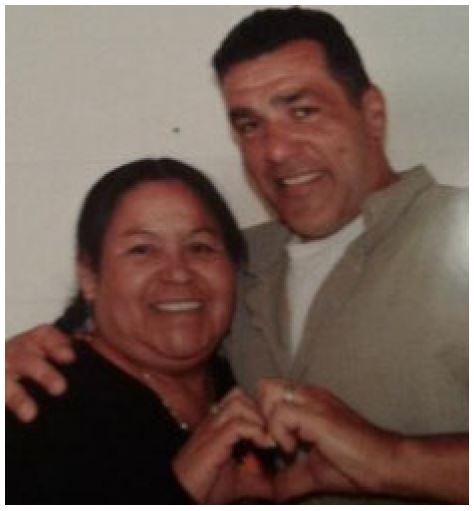 Anthony DeJohn is serving his 13th year of a life sentence after being offered a pre-trial plea deal carrying a sentence as low as 20 years. The prosecution filed an information for one of Mr. DeJohn’s prior drug convictions, and when he refused to plead guilty, they followed through on their threat to file an information on the second prior conviction, resulting in a mandatory life sentence. Other codefendants who were more culpable have since been released after pleading guilty and receiving lesser sentences. Even without the prospect of release, however, Mr. DeJohn has maintained a clear disciplinary record for years and is known in prison for his outstanding work ethic.
Anthony DeJohn is serving his 13th year of a life sentence after being offered a pre-trial plea deal carrying a sentence as low as 20 years. The prosecution filed an information for one of Mr. DeJohn’s prior drug convictions, and when he refused to plead guilty, they followed through on their threat to file an information on the second prior conviction, resulting in a mandatory life sentence. Other codefendants who were more culpable have since been released after pleading guilty and receiving lesser sentences. Even without the prospect of release, however, Mr. DeJohn has maintained a clear disciplinary record for years and is known in prison for his outstanding work ethic. Kenneth Charles Fragoso (“Charlie”) is a 66-year-old U.S. Navy veteran who has served over 30 years for a nonviolent drug offense. He is currently serving a life sentence. If he were sentenced today for the same offense, he would already be released. Mr. Fragoso has a completely clean disciplinary record without a single instance of prohibited conduct during his three decades in prison. While in prison, Mr. Fragoso has worked for UNICOR for over 20 years, learned new trades, and mentored fellow inmates. Due to his age and medical conditions, he is facing a serious decline in his health and is at high risk of severe illness or death if he were to catch COVID-19.
Kenneth Charles Fragoso (“Charlie”) is a 66-year-old U.S. Navy veteran who has served over 30 years for a nonviolent drug offense. He is currently serving a life sentence. If he were sentenced today for the same offense, he would already be released. Mr. Fragoso has a completely clean disciplinary record without a single instance of prohibited conduct during his three decades in prison. While in prison, Mr. Fragoso has worked for UNICOR for over 20 years, learned new trades, and mentored fellow inmates. Due to his age and medical conditions, he is facing a serious decline in his health and is at high risk of severe illness or death if he were to catch COVID-19. Robert Francis is serving his 19th year of a life sentence, after being offered a sentence of 25 to 30 years pre-trial. He is incarcerated on non-violent drug conspiracy charges. Had he accepted the government’s plea offer, he would be free soon, given the good time credits from his spotless disciplinary record and active efforts toward learning and rehabilitation. Instead, Mr. Francis went to trial. The prosecution held him accountable for greater drug weights and two enhancements, and, unlike some of his co-defendants who have been freed or resentenced, Mr. Francis is now slated to die in prison.
Robert Francis is serving his 19th year of a life sentence, after being offered a sentence of 25 to 30 years pre-trial. He is incarcerated on non-violent drug conspiracy charges. Had he accepted the government’s plea offer, he would be free soon, given the good time credits from his spotless disciplinary record and active efforts toward learning and rehabilitation. Instead, Mr. Francis went to trial. The prosecution held him accountable for greater drug weights and two enhancements, and, unlike some of his co-defendants who have been freed or resentenced, Mr. Francis is now slated to die in prison.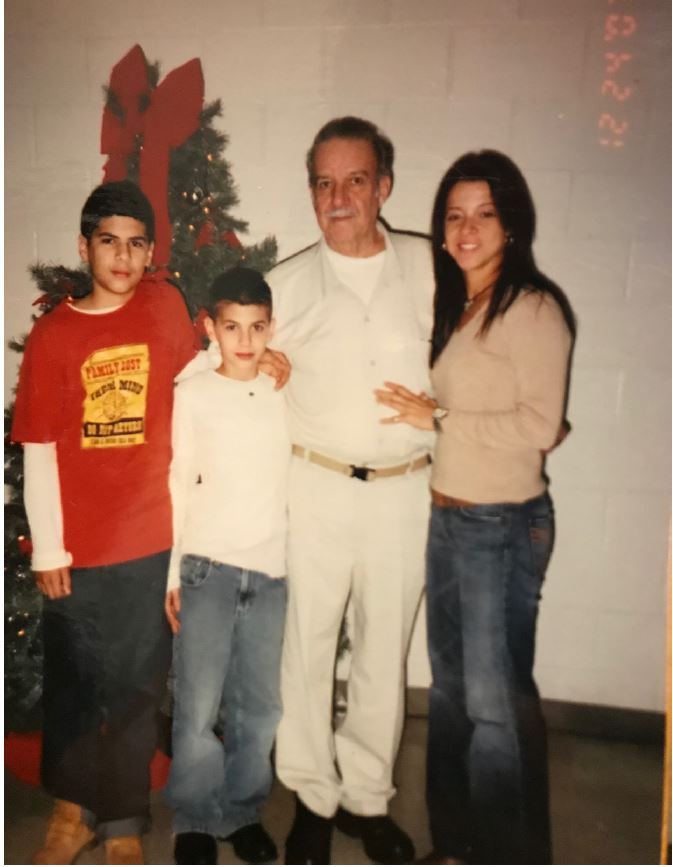 Luis Gonzalez is a 78-year-old non-violent drug offender who has served over 27 years in prison. If he were sentenced today, he would have been released more than 8 years ago. Mr. Gonzalez worked for UNICOR producing military uniforms for over 20 years and has only one non-violent discipline incident in all his years of incarceration. Mr. Gonzalez is now in poor health due to chronic illness and aging. Due to his length of sentence served, his demonstrated rehabilitation, and the fact that he would not be sentenced to life today, Mr. Gonzalez is deserving of clemency.
Luis Gonzalez is a 78-year-old non-violent drug offender who has served over 27 years in prison. If he were sentenced today, he would have been released more than 8 years ago. Mr. Gonzalez worked for UNICOR producing military uniforms for over 20 years and has only one non-violent discipline incident in all his years of incarceration. Mr. Gonzalez is now in poor health due to chronic illness and aging. Due to his length of sentence served, his demonstrated rehabilitation, and the fact that he would not be sentenced to life today, Mr. Gonzalez is deserving of clemency. John Knock, a first-time offender, has served 24 years of a life sentence for marijuana charges. Unlike some of his co-conspirators who pled guilty and were freed decades ago, Mr. Knock exercised his constitutional right to a trial. He has had zero incident reports during his incarceration and would have broad family support and steady employment upon release.
John Knock, a first-time offender, has served 24 years of a life sentence for marijuana charges. Unlike some of his co-conspirators who pled guilty and were freed decades ago, Mr. Knock exercised his constitutional right to a trial. He has had zero incident reports during his incarceration and would have broad family support and steady employment upon release.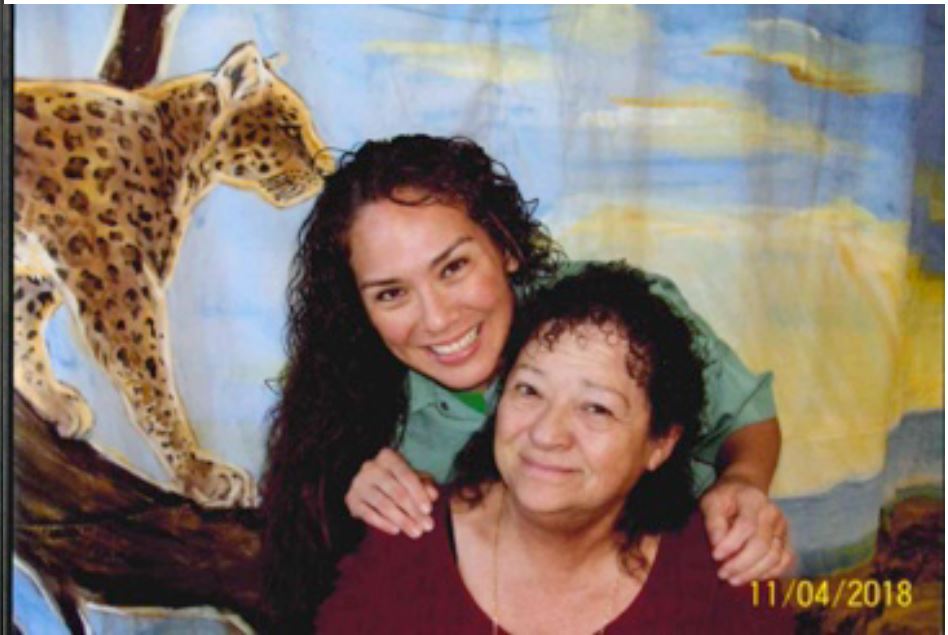 Michelle Yvette Lee has served 10 years of a 30-year sentence, after being offered a sentence to a reduced charge that would have likely resulted in a sentence close to the time she has already served. Ms. Yvette Lee is a 40-year-old woman and mother of three children who has been incarcerated over a decade for a non-violent drug distribution offense, which was driven at the time by her own debilitating addiction. She went to trial with her co-defendant husband and was sentenced to over three times the sentence she would likely have received upon a guilty plea. She has had an exemplary prison history, including taking college accounting classes and completing an office management apprenticeship. Sober and remorseful, she remains close with her children and immediate family and is eager to return to a productive life in society where she plans to find gainful employment using the skills she perfected while in custody, and complete her college education.
Michelle Yvette Lee has served 10 years of a 30-year sentence, after being offered a sentence to a reduced charge that would have likely resulted in a sentence close to the time she has already served. Ms. Yvette Lee is a 40-year-old woman and mother of three children who has been incarcerated over a decade for a non-violent drug distribution offense, which was driven at the time by her own debilitating addiction. She went to trial with her co-defendant husband and was sentenced to over three times the sentence she would likely have received upon a guilty plea. She has had an exemplary prison history, including taking college accounting classes and completing an office management apprenticeship. Sober and remorseful, she remains close with her children and immediate family and is eager to return to a productive life in society where she plans to find gainful employment using the skills she perfected while in custody, and complete her college education.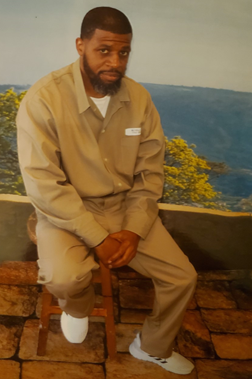 Lazelle Maxwell is entering the 14th year of a 30-year sentence for a crack-cocaine trafficking offense imposed in the U.S. District Court for the Eastern District of Kentucky. Mr. Maxwell was offered a sentence approximately 10 years shorter if he had elected to enter a guilty plea. He declined and received a much harsher penalty post-trial. Moreover, were Mr. Maxwell sentenced today, he would face a substantially lower sentencing range because of changes in the law that have not applied retroactively. While in prison, Mr. Maxwell has received no disciplinary infractions, has taken dozens of educational courses, and has helped provide medical care through the Inmate Companion Program. And he has done all this while fighting and surviving cancer. Mr. Maxwell has a robust community of friends and family anxious to welcome him home.
Lazelle Maxwell is entering the 14th year of a 30-year sentence for a crack-cocaine trafficking offense imposed in the U.S. District Court for the Eastern District of Kentucky. Mr. Maxwell was offered a sentence approximately 10 years shorter if he had elected to enter a guilty plea. He declined and received a much harsher penalty post-trial. Moreover, were Mr. Maxwell sentenced today, he would face a substantially lower sentencing range because of changes in the law that have not applied retroactively. While in prison, Mr. Maxwell has received no disciplinary infractions, has taken dozens of educational courses, and has helped provide medical care through the Inmate Companion Program. And he has done all this while fighting and surviving cancer. Mr. Maxwell has a robust community of friends and family anxious to welcome him home. Chalana McFarland has served 15 years of a 30-year sentence, after being offered a pre-trial plea deal with a sentence as low as 87 months (just over 7 years). The government offered Ms. McFarland a plea to fewer counts which carried a range of 87 to 327 months, with the amount depending on sentencing aspects like attributable loss and her role in the crime. Though she went to trial, Ms. McFarland actually cooperated with authorities by informing them of a potential attack on the US Attorney – but only her co-defendants, who pled guilty, received lesser sentences of 5 to 87 months. Ms. McFarland was a model incarcerated person and is now under home confinement.
Chalana McFarland has served 15 years of a 30-year sentence, after being offered a pre-trial plea deal with a sentence as low as 87 months (just over 7 years). The government offered Ms. McFarland a plea to fewer counts which carried a range of 87 to 327 months, with the amount depending on sentencing aspects like attributable loss and her role in the crime. Though she went to trial, Ms. McFarland actually cooperated with authorities by informing them of a potential attack on the US Attorney – but only her co-defendants, who pled guilty, received lesser sentences of 5 to 87 months. Ms. McFarland was a model incarcerated person and is now under home confinement. Gladstone Morrison has served eight years of a 15 years and 7 months sentence — his first and only contact with the criminal legal system. He, along with his wife Jacqueline (also in the NACDL Trial Penalty Clemency Project) was convicted on charges of fraud related to the tax preparation business he and his wife owned. Mr. Morrison declined a 3-year plea deal and chose to take his case to trial. As a result of the trial penalty, he ended up with a sentence more than five times as long as the deal offered. This draconian sentence separated him from his wife and two daughters, as well as his granddaughter. An immigrant from Jamaica who attended college on an athletic scholarship, Mr. Morrison’s conduct while incarcerated has been exemplary. He is just shy of two credits before he graduates with a Masters in Bible Theology from Tyndale Theological Seminary. In his current facility, he leads weekly church services and inmate Bible study sessions. He has an excellent release plan with his wife who he hasn’t seen for seven years.
Gladstone Morrison has served eight years of a 15 years and 7 months sentence — his first and only contact with the criminal legal system. He, along with his wife Jacqueline (also in the NACDL Trial Penalty Clemency Project) was convicted on charges of fraud related to the tax preparation business he and his wife owned. Mr. Morrison declined a 3-year plea deal and chose to take his case to trial. As a result of the trial penalty, he ended up with a sentence more than five times as long as the deal offered. This draconian sentence separated him from his wife and two daughters, as well as his granddaughter. An immigrant from Jamaica who attended college on an athletic scholarship, Mr. Morrison’s conduct while incarcerated has been exemplary. He is just shy of two credits before he graduates with a Masters in Bible Theology from Tyndale Theological Seminary. In his current facility, he leads weekly church services and inmate Bible study sessions. He has an excellent release plan with his wife who he hasn’t seen for seven years.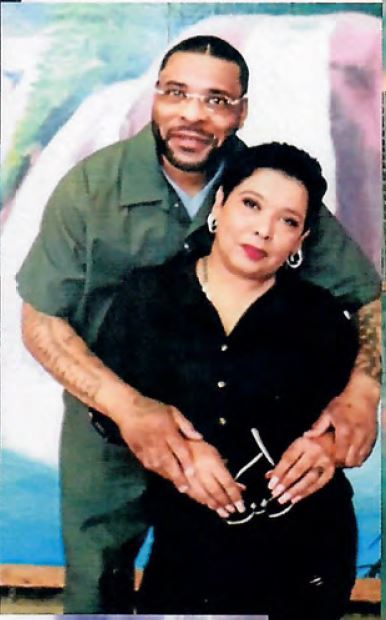 Derrick Smith is serving his 20th year of a sentence of 28 years and 4 months, after being offered a maximum pre-trial sentence of 20 years. Mr. Smith gave drugs to a party companion. The young woman tragically over-dosed. Smith brought her to the hospital and prayed by her bedside, but medics were not able to save her. He was charged with distributing cocaine causing death, rejecting a pre-trial offer that would have capped his sentencing exposure at 20 years. Mr. Smith is deeply remorseful for his role in this tragic death. Mr. Smith grew up in a difficult environment with little family support but has a stellar record while incarcerated. Even aside from the trial penalty, Mr. Smith’s sentence would likely be significantly lower today under recent Supreme Court jurisprudence.
Derrick Smith is serving his 20th year of a sentence of 28 years and 4 months, after being offered a maximum pre-trial sentence of 20 years. Mr. Smith gave drugs to a party companion. The young woman tragically over-dosed. Smith brought her to the hospital and prayed by her bedside, but medics were not able to save her. He was charged with distributing cocaine causing death, rejecting a pre-trial offer that would have capped his sentencing exposure at 20 years. Mr. Smith is deeply remorseful for his role in this tragic death. Mr. Smith grew up in a difficult environment with little family support but has a stellar record while incarcerated. Even aside from the trial penalty, Mr. Smith’s sentence would likely be significantly lower today under recent Supreme Court jurisprudence. Blanca Virgen, a mother of four imprisoned hundreds of miles from her family, has served 12 years of a 30-year sentence for drug charges. She exercised her constitutional right and went to trial rather than accepting the government’s plea offer of 10 years. Ms. Virgen is a model prisoner, having received countless achievement awards from her programming, and with only one minor infraction from seven years ago. Ms. Virgen wishes to go home and care for her children, two of whom recently lost their primary caregiver.
Blanca Virgen, a mother of four imprisoned hundreds of miles from her family, has served 12 years of a 30-year sentence for drug charges. She exercised her constitutional right and went to trial rather than accepting the government’s plea offer of 10 years. Ms. Virgen is a model prisoner, having received countless achievement awards from her programming, and with only one minor infraction from seven years ago. Ms. Virgen wishes to go home and care for her children, two of whom recently lost their primary caregiver. Sholam Weiss, the son of Holocaust survivors, has served 20 years of an 835-year sentence for fraud and related charges. Mr. Weiss exercised his constitutional right to a trial rather than accepting the prosecution’s plea deal for either five or 10 years. As a 66-year-old cancer survivor with cardiovascular disease and other medical conditions, he is particularly at risk for complications from COVID-19, which is spreading rapidly in federal prisons.
Sholam Weiss, the son of Holocaust survivors, has served 20 years of an 835-year sentence for fraud and related charges. Mr. Weiss exercised his constitutional right to a trial rather than accepting the prosecution’s plea deal for either five or 10 years. As a 66-year-old cancer survivor with cardiovascular disease and other medical conditions, he is particularly at risk for complications from COVID-19, which is spreading rapidly in federal prisons. Robert Bernhardt is serving his 25th year of a life sentence after rejecting a cooperation and plea deal which would have likely carried a sentence of 151 months (12 and a half years). Just a few months prior to trial, the prosecution filed an information of a prior conviction (for which Mr. Bernhardt served no time) that doubled his mandatory minimum. Along with the “stacking” enhancement of § 924(c) – which is now prohibited by the First Step Act – that resulted in a life sentence. Even without the prospect of release, Mr. Bernhardt has maintained a spotless disciplinary record while incarcerated and has completed nearly 2,000 hours of education.
Robert Bernhardt is serving his 25th year of a life sentence after rejecting a cooperation and plea deal which would have likely carried a sentence of 151 months (12 and a half years). Just a few months prior to trial, the prosecution filed an information of a prior conviction (for which Mr. Bernhardt served no time) that doubled his mandatory minimum. Along with the “stacking” enhancement of § 924(c) – which is now prohibited by the First Step Act – that resulted in a life sentence. Even without the prospect of release, Mr. Bernhardt has maintained a spotless disciplinary record while incarcerated and has completed nearly 2,000 hours of education. John K. Caylor is a 54-year-old man who has served over 20 years in prison for a non-violent drug offense. Rejecting an offer of 15 years, he went to trial and was sentenced to life in prison. This was later reduced to 30 years. Mr. Caylor has demonstrated remarkable rehabilitation, with excellent personal conduct in prison and a history of employment through UNICOR. Despite the fact that he was not a leader of the drug conspiracy, Mr. Caylor will soon be the only remaining codefendant in prison. Mr. Caylor’s only son suffers from end stage renal failure and is in desperate need of a kidney transplant. Mr. Caylor seeks to be released so that he may try to become a kidney donor and to provide much-needed emotional support and care to his son. Based on his length of sentence served and his demonstrated rehabilitation, Mr. Caylor is deserving of clemency.
John K. Caylor is a 54-year-old man who has served over 20 years in prison for a non-violent drug offense. Rejecting an offer of 15 years, he went to trial and was sentenced to life in prison. This was later reduced to 30 years. Mr. Caylor has demonstrated remarkable rehabilitation, with excellent personal conduct in prison and a history of employment through UNICOR. Despite the fact that he was not a leader of the drug conspiracy, Mr. Caylor will soon be the only remaining codefendant in prison. Mr. Caylor’s only son suffers from end stage renal failure and is in desperate need of a kidney transplant. Mr. Caylor seeks to be released so that he may try to become a kidney donor and to provide much-needed emotional support and care to his son. Based on his length of sentence served and his demonstrated rehabilitation, Mr. Caylor is deserving of clemency. Betty Lee Jenkins,62 years old, has served most of her 10.5-year sentence for distribution of medical marijuana in the State of Michigan. She was offered a plea offer with a cap of five years prior to her federal trial on conduct that was legal at the state level but remained criminalized at the federal level. Today, under more enlightened federal prosecution practices, Ms. Jenkins, a single mother of five, would not even be charged. She has had a spotless disciplinary record in prison and run several programs for her fellow prisoners, including as a wellness tutor and fitness trainer. She has an excellent release plan with her sister in Canada and plans to work as a dog trainer and dog groomer. She loves animals.
Betty Lee Jenkins,62 years old, has served most of her 10.5-year sentence for distribution of medical marijuana in the State of Michigan. She was offered a plea offer with a cap of five years prior to her federal trial on conduct that was legal at the state level but remained criminalized at the federal level. Today, under more enlightened federal prosecution practices, Ms. Jenkins, a single mother of five, would not even be charged. She has had a spotless disciplinary record in prison and run several programs for her fellow prisoners, including as a wellness tutor and fitness trainer. She has an excellent release plan with her sister in Canada and plans to work as a dog trainer and dog groomer. She loves animals. Jackie Laster has served over six years of her 188-month sentence imposed for low-level, non-violent, unarmed role in a street crack distribution conspiracy. She pled to avoid a much higher penalty after trial, but then at sentencing, the government advocated for a series of enhancements that had never been previewed with Ms. Laster during the plea-bargaining process. In effect, she faced the post-trial sentence without the benefit of a trial. Her prison record has been exemplary. She completed a housekeeping apprenticeship and was selected as a mentor to new inmates at her prison camp. Upon release, Ms. Laster is planning on living with her older sister, who is currently caring for Ms. Laster’s son.
Jackie Laster has served over six years of her 188-month sentence imposed for low-level, non-violent, unarmed role in a street crack distribution conspiracy. She pled to avoid a much higher penalty after trial, but then at sentencing, the government advocated for a series of enhancements that had never been previewed with Ms. Laster during the plea-bargaining process. In effect, she faced the post-trial sentence without the benefit of a trial. Her prison record has been exemplary. She completed a housekeeping apprenticeship and was selected as a mentor to new inmates at her prison camp. Upon release, Ms. Laster is planning on living with her older sister, who is currently caring for Ms. Laster’s son..jpg) Brent Maurstad is in his 8th year of a 16.5-year sentence imposed for his low-level, non-violent role in a conspiracy to distribute methamphetamine. A star athlete in high school and vice president of his senior class, his life unraveled because of a debilitating addiction to methamphetamine that began in his 20s. His sentence was driven by the government’s decision to threaten him with a mandatory life sentence after trial. The statute the government used was intended by Congress to ensure that the most reprehensible of drug dealers were put behind bars for a long time. Instead, they have been used all too often to incarcerate low-level drug addicts on sentences that far exceed any public safety or punishment imperatives. Mr. Maurstad’s case is one such case. In sentencing him on his guilty plea, the court used the life sentence as a reference. Mr. Maurstad would not face a life sentence today, and his charging, plea-bargaining and sentencing landscapes would be significantly more lenient. Mr. Maurstad has a spotless record in prison, where he competed two 2,000-hour apprenticeships in landscaping, and also obtained an undergraduate university certificate in horticulture. He has a solid release plan in the home he still owns in Grand Forks, blocks from his elderly mobility-challenged mother, and a job in a tree-service business.
Brent Maurstad is in his 8th year of a 16.5-year sentence imposed for his low-level, non-violent role in a conspiracy to distribute methamphetamine. A star athlete in high school and vice president of his senior class, his life unraveled because of a debilitating addiction to methamphetamine that began in his 20s. His sentence was driven by the government’s decision to threaten him with a mandatory life sentence after trial. The statute the government used was intended by Congress to ensure that the most reprehensible of drug dealers were put behind bars for a long time. Instead, they have been used all too often to incarcerate low-level drug addicts on sentences that far exceed any public safety or punishment imperatives. Mr. Maurstad’s case is one such case. In sentencing him on his guilty plea, the court used the life sentence as a reference. Mr. Maurstad would not face a life sentence today, and his charging, plea-bargaining and sentencing landscapes would be significantly more lenient. Mr. Maurstad has a spotless record in prison, where he competed two 2,000-hour apprenticeships in landscaping, and also obtained an undergraduate university certificate in horticulture. He has a solid release plan in the home he still owns in Grand Forks, blocks from his elderly mobility-challenged mother, and a job in a tree-service business. Benton Miley is a 70-year-old U.S. Navy veteran who has served over 29 years in prison for drug-related offenses. Mr. Miley has worked for UNICOR and in various positions within the BOP for many years and has not had any disciplinary incidents in all his years of incarceration. Mr. Miley is now in poor health due to complications from colon cancer, and he suffers from periodontal disease and severe abdominal and joint pain. In addition, due to his compromised immune system, he remains at risk of suffering from severe illness if he were to contract COVID-19. Based on his length of sentence served and his demonstrated rehabilitation, Mr. Miley is deserving of clemency.
Benton Miley is a 70-year-old U.S. Navy veteran who has served over 29 years in prison for drug-related offenses. Mr. Miley has worked for UNICOR and in various positions within the BOP for many years and has not had any disciplinary incidents in all his years of incarceration. Mr. Miley is now in poor health due to complications from colon cancer, and he suffers from periodontal disease and severe abdominal and joint pain. In addition, due to his compromised immune system, he remains at risk of suffering from severe illness if he were to contract COVID-19. Based on his length of sentence served and his demonstrated rehabilitation, Mr. Miley is deserving of clemency. Jacqueline Morrison has served almost seven years of a 15 years and 7 months sentence. Ms. Morrison is a first-time, non-violent offender convicted on charges of fraud related to the tax preparation business she owned. Ms. Morrison declined a 5-year plea deal and chose to take her case to trial, and as a result of the trial penalty, ended up with a sentence more than three times as long as the deal offered. This draconian sentence separated her from her husband, her two daughters, and her granddaughter. Ms. Morrison’s conduct while incarcerated has been exemplary. She is currently released on home confinement because as a Type 2 diabetic, she is at high risk of serious illness from COVID-19, and she fears being forced to return to prison which would quite literally endanger her life.
Jacqueline Morrison has served almost seven years of a 15 years and 7 months sentence. Ms. Morrison is a first-time, non-violent offender convicted on charges of fraud related to the tax preparation business she owned. Ms. Morrison declined a 5-year plea deal and chose to take her case to trial, and as a result of the trial penalty, ended up with a sentence more than three times as long as the deal offered. This draconian sentence separated her from her husband, her two daughters, and her granddaughter. Ms. Morrison’s conduct while incarcerated has been exemplary. She is currently released on home confinement because as a Type 2 diabetic, she is at high risk of serious illness from COVID-19, and she fears being forced to return to prison which would quite literally endanger her life.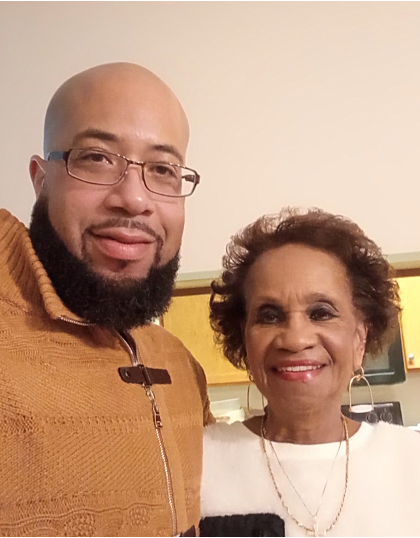 Jason Payne has served 95 months of a 140-month sentence he received for his low-level, non-violent and unarmed role in a drug distribution scheme. His long sentence was driven by the government’s threat to file a notice relating to two prior minor drug convictions that would have subjected him to a mandatory minimum sentence of life. Mr. Payne had no choice but to accept this lengthy sentence and the judge imposed it without any departure, knowing that it saved Mr. Payne from a life sentence. Mr. Payne has a pristine disciplinary record and was released under the CARES Act at the beginning of this year. He works as a semi-truck driver and is devoting all his spare time to reconnecting with his children, family members and friends.
Jason Payne has served 95 months of a 140-month sentence he received for his low-level, non-violent and unarmed role in a drug distribution scheme. His long sentence was driven by the government’s threat to file a notice relating to two prior minor drug convictions that would have subjected him to a mandatory minimum sentence of life. Mr. Payne had no choice but to accept this lengthy sentence and the judge imposed it without any departure, knowing that it saved Mr. Payne from a life sentence. Mr. Payne has a pristine disciplinary record and was released under the CARES Act at the beginning of this year. He works as a semi-truck driver and is devoting all his spare time to reconnecting with his children, family members and friends. Brian Lakeith Rowe was sentenced to 30 years in 2010 for a first-time, non-violent offense, based on his role as a driver in a cocaine distribution scheme. He briefly participated in the scheme when he could not find work during the financial crisis, but exited shortly thereafter and by the time of his arrest, he was leading a happy and successful life in New York. Rowe elected to exercise his right to a trial, receiving a sentence substantially higher than eight of nine co-defendants — all more culpable than him, and all but one have been released from prison. Rowe’s prison conduct has been outstanding. He has zero disciplinary infractions and is pursuing his Associate’s Degree in Information Technology. He has a strong release plan with family in New York.
Brian Lakeith Rowe was sentenced to 30 years in 2010 for a first-time, non-violent offense, based on his role as a driver in a cocaine distribution scheme. He briefly participated in the scheme when he could not find work during the financial crisis, but exited shortly thereafter and by the time of his arrest, he was leading a happy and successful life in New York. Rowe elected to exercise his right to a trial, receiving a sentence substantially higher than eight of nine co-defendants — all more culpable than him, and all but one have been released from prison. Rowe’s prison conduct has been outstanding. He has zero disciplinary infractions and is pursuing his Associate’s Degree in Information Technology. He has a strong release plan with family in New York.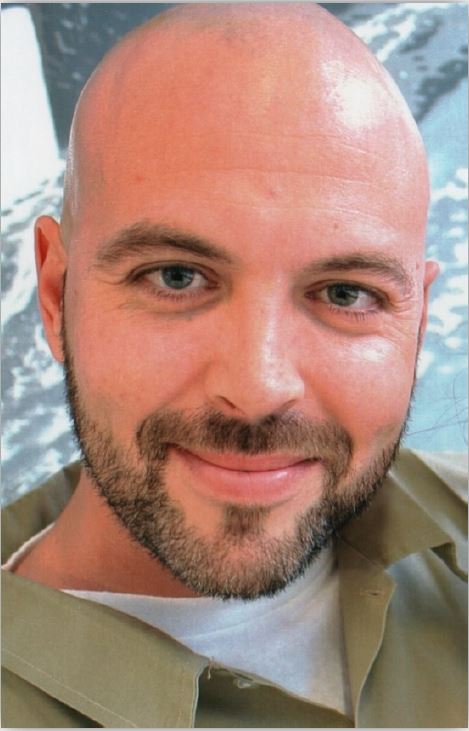 Luke Scarmazzo has served more than 12 years of a 22-year sentence. The co-defendants who pled guilty received sentences ranging from probation to one year of incarceration. Mr. Scarmazzo has been incarcerated for over a decade following a conviction for operating a medical marijuana dispensary which was legal under California law. Mr. Scarmazzo and one co-defendant (of seven) were charged under the continuing criminal enterprise statute and remain the only two convicted. As the judge noted at sentencing, Mr. Scarmazzo’s decision to go to trial was conscious and political: he genuinely believed that his delivery of marijuana for medicinal reasons was legal under prevailing law (just like John Paul Zenger in his 1735 trial believed that it was legal to recount truthful facts about the governor of New York). Mr. Scarmazzo has completed numerous classes and received an Associate's Degree.
Luke Scarmazzo has served more than 12 years of a 22-year sentence. The co-defendants who pled guilty received sentences ranging from probation to one year of incarceration. Mr. Scarmazzo has been incarcerated for over a decade following a conviction for operating a medical marijuana dispensary which was legal under California law. Mr. Scarmazzo and one co-defendant (of seven) were charged under the continuing criminal enterprise statute and remain the only two convicted. As the judge noted at sentencing, Mr. Scarmazzo’s decision to go to trial was conscious and political: he genuinely believed that his delivery of marijuana for medicinal reasons was legal under prevailing law (just like John Paul Zenger in his 1735 trial believed that it was legal to recount truthful facts about the governor of New York). Mr. Scarmazzo has completed numerous classes and received an Associate's Degree.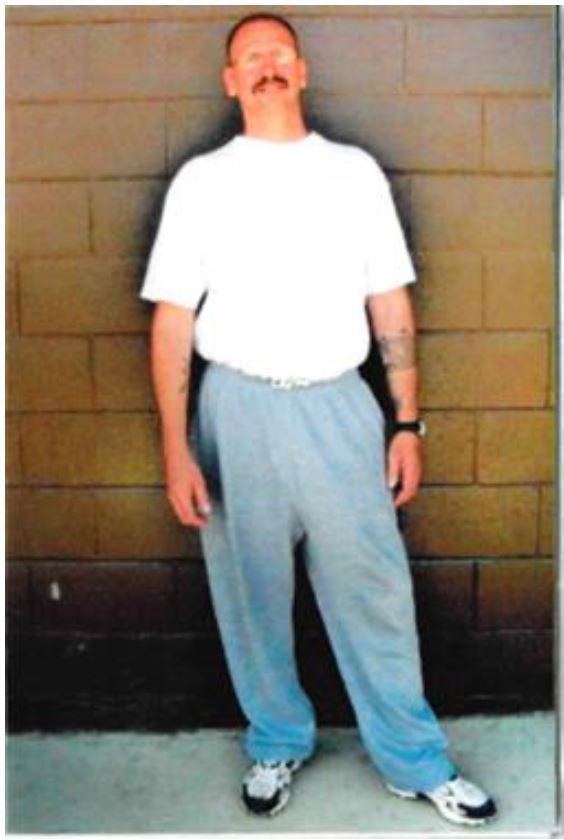 Michael Schutte is serving his 23rd year of a 30-year sentence, after co-conspirators pled guilty and were sentenced to 10 and 14 years. Mr. Schutte has been incarcerated over two decades for a non-violent drug crime on a sentence that would be much lower today. Mr. Schutte has used this time to take a broad range of vocational classes, complete a twelve-step program, and complete other rehabilitative achievements. He is particularly vulnerable to COVID-19 due to his age and medical conditions and has a re-entry plan with family support.
Michael Schutte is serving his 23rd year of a 30-year sentence, after co-conspirators pled guilty and were sentenced to 10 and 14 years. Mr. Schutte has been incarcerated over two decades for a non-violent drug crime on a sentence that would be much lower today. Mr. Schutte has used this time to take a broad range of vocational classes, complete a twelve-step program, and complete other rehabilitative achievements. He is particularly vulnerable to COVID-19 due to his age and medical conditions and has a re-entry plan with family support. First-time offender Kanya Tirado was sentenced to a mandatory minimum of ten years for her role as courier in a cocaine distribution scheme. Her conduct was unarmed and entirely nonviolent. Rejecting offers that would have had her serve little to no prison time if she cooperated against others, Ms. Tirado exercised her right to trial. She was convicted and the court had no choice but to impose the mandatory minimum sentence. Ms. Tirado, who was orphaned in her teens when both her parents died of AIDS, had five children ranging in age from 8 to 19 when she was incarcerated. She was released on home confinement under the CARES Act in 2021, works full-time and spends every spare minute with her children.
First-time offender Kanya Tirado was sentenced to a mandatory minimum of ten years for her role as courier in a cocaine distribution scheme. Her conduct was unarmed and entirely nonviolent. Rejecting offers that would have had her serve little to no prison time if she cooperated against others, Ms. Tirado exercised her right to trial. She was convicted and the court had no choice but to impose the mandatory minimum sentence. Ms. Tirado, who was orphaned in her teens when both her parents died of AIDS, had five children ranging in age from 8 to 19 when she was incarcerated. She was released on home confinement under the CARES Act in 2021, works full-time and spends every spare minute with her children. Barbara Williams, 47, has served 7 years of a 16-year sentence she received from her low-level, non-violent role in a drug distribution scheme in the District of North Dakota - which itself was driven by her drug addiction and experience of abuse in her personal history. Her sentence was dictated by the government’s decision to file notices of recidivist enhancements in her case. Such recidivist enhancements were intended by Congress to ensure that the most reprehensible of drug dealers were put behind bars for a long time. Instead, they have been used all too often to incarcerate low-level drug addicts on sentences that far exceed any public safety or punishment imperatives. Ms. Willaims’s case is one such case. In sentencing her on her guilty plea, the court used the life sentence as a reference to decide her lengthy sentence. Today, that frame would significantly lower, and her sentence would be proportionately lower. She has already served the likely sentence she would receive today. Ms. Williams has an exemplary prison record and an excellent release plan.
Barbara Williams, 47, has served 7 years of a 16-year sentence she received from her low-level, non-violent role in a drug distribution scheme in the District of North Dakota - which itself was driven by her drug addiction and experience of abuse in her personal history. Her sentence was dictated by the government’s decision to file notices of recidivist enhancements in her case. Such recidivist enhancements were intended by Congress to ensure that the most reprehensible of drug dealers were put behind bars for a long time. Instead, they have been used all too often to incarcerate low-level drug addicts on sentences that far exceed any public safety or punishment imperatives. Ms. Willaims’s case is one such case. In sentencing her on her guilty plea, the court used the life sentence as a reference to decide her lengthy sentence. Today, that frame would significantly lower, and her sentence would be proportionately lower. She has already served the likely sentence she would receive today. Ms. Williams has an exemplary prison record and an excellent release plan. Cleotha Young is serving his 7th year of a mandatory minimum 20-year sentence, after being offered a plea with a mandatory 10-year minimum prior to trial. Cleotha is a 37-year-old African-American man who is incarcerated on non-violent drug conspiracy charges. He played a minor role in the conspiracy, even according to the prosecution. However, the court was forced to sentence Mr. Young more severely than most of his co-defendants because the prosecution doubled his mandatory minimum after he decided to go to trial. Mr. Young has used his six years of incarceration to better himself, complete programs on drugs and victim impact, and gain new skills.
Cleotha Young is serving his 7th year of a mandatory minimum 20-year sentence, after being offered a plea with a mandatory 10-year minimum prior to trial. Cleotha is a 37-year-old African-American man who is incarcerated on non-violent drug conspiracy charges. He played a minor role in the conspiracy, even according to the prosecution. However, the court was forced to sentence Mr. Young more severely than most of his co-defendants because the prosecution doubled his mandatory minimum after he decided to go to trial. Mr. Young has used his six years of incarceration to better himself, complete programs on drugs and victim impact, and gain new skills.










